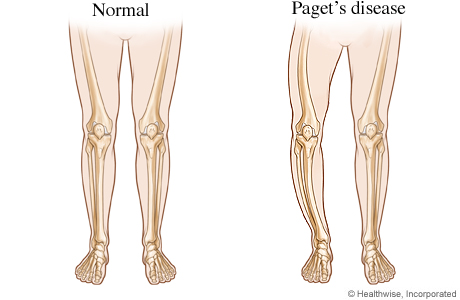Do you know another bone disease aside from osteoporosis? Perhaps you have not heard of Paget’s disease, which is considered as the second most common disease of the bone next only to osteoporosis. It occurs mostly in older people, affecting 4 percent of adults aged 50 years and above. Although it is not fatal, Paget’s disease can lead to complications like hearing loss, arthritis and headaches.
And if left untreated, it can greatly affect your day-to-day living. Paget’s disease is characterized by the abnormal growth of bone. Remember that bones are living tissues, and old bones are broken down and replaced by new bones produced by the body. However, people who have Paget’s disease have their old bones disintegrated and replaced by new bones at a faster pace. Thus, the new bones are either enlarged, brittle and have greater risks of fracture.
Causes
Paget’s disease affects any part of our skeleton. The condition though often affects the bones of the spine, pelvis, limbs and even the skull. Up to this day, science has not determined the actual cause of this disease. But studies have indicated that it is genetic in nature; thus if your parents or forefathers have this before then you could have it in the future as well. People who live in the United States, England, Australia and Western Europe are more likely to get afflicted with the disease while those who live in Japan, China and other Asian countries don’t.
Symptoms
 The problem with Paget’s disease is that it usually doesn’t have any symptoms. Most of the time, people afflicted with the condition would only learn that they have this bone problem from their doctors. Diagnosis requires X-ray tests which will reveal misshapen bones, or when high levels of serum alkaline phosphatase are found during a routine blood exam.
The problem with Paget’s disease is that it usually doesn’t have any symptoms. Most of the time, people afflicted with the condition would only learn that they have this bone problem from their doctors. Diagnosis requires X-ray tests which will reveal misshapen bones, or when high levels of serum alkaline phosphatase are found during a routine blood exam.
Patients who have symptoms often complain about bone pain. The pain may be due to the disease or its complications like bone deformity, brittle bone fracture, and advanced arthritis of the joints close to the affected bone. Other rarer symptoms are chronic fatigue, loss of appetite, constipation and abdominal pain. The symptoms may also vary depending on the affected bones and the stage of the disease. For instance, numbness can be a result of the enlarged bones pinching nearby nerves. Limping and pain in the knees can be due to the enlargement of the bones of the hips or knees. If bones of the skull are affected, then symptoms like hearing loss, headache and blindness may arise.
Treatment
Fortunately, there are plenty of medications that doctors prescribe to their patients to slow down the progression of Paget’s disease and control its symptoms. One of these drugs is Fosamax with the generic name alendronate. It is part of a group of drugs called bisphosphonate which alters the bone formation cycle and breakdown. It also slows down bone loss and increases bone mass. Usually, patients with Paget’s disease are instructed by their doctors to take 40 mg of Fosamax daily for six months.
Share This